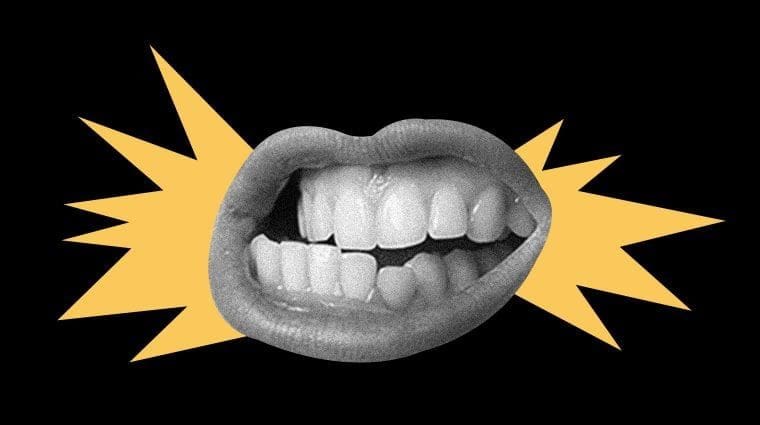Dental bruxism is the involuntary clenching or grinding of the teeth. There are two types of bruxism: awake and sleep bruxism. Bruxing (grinding) can remove tooth enamel and render teeth more susceptible to sensitivity and decay. Bruxism can lead to tender facial muscles, jaw fatigue and TMJ (temporomandibular joint) disease, tension headaches, migraine episodes, irreversible gum recession, and fractured, chipped, and sensitive teeth.
The causes for bruxism can be dental-related, systemic, or psychological. Malocclusion (misalignment of the teeth) can cause an imbalance between the facial muscles that control the opening and closing of the jaw, which in turn may trigger grinding. Clenching is often observed in awake bruxism when the individual is anxious, stressed, intensely focused, angry, or frustrated. Sleep bruxism is likely linked to anxiety, stress, and sleep disorders. Prescription medications for depression (SSRIs), Parkinson’s disease, and ADHD can also cause bruxism. Systemic factors that have been implicated in bruxism include endocrine disorders, allergies, and calcium and magnesium deficiencies. Other risk factors for bruxism include alcohol (especially at nighttime), smoking, chewing tobacco, and excessive caffeine consumption.
The best person to diagnose bruxism is your dentist. At your routine cleaning and dental exams, ask your dentist if he/she notices any signs of grinding. Due to the “multifactorial” etiology of bruxism, it is difficult to offer medical advice without a complete evaluation of the patient’s symptoms, medical history, and other risk factors. Patients are advised to rule out sleep disorders and to engage in stress reduction and management.
Generally, dental intervention for bruxism focuses on minimizing its impact on the teeth as well as repairing the damages that have incurred. Night guards or occlusal splints can be worn to prevent wear-and-tear from nighttime grinding. Oral steroids such as Medrol may be administered to relieve acute pain during a flare-up. If a patient suffers from TMJ resulting from poor occlusion, orthodontic treatments such as Invisalign® can help adjust your bite and relieve the pain.

